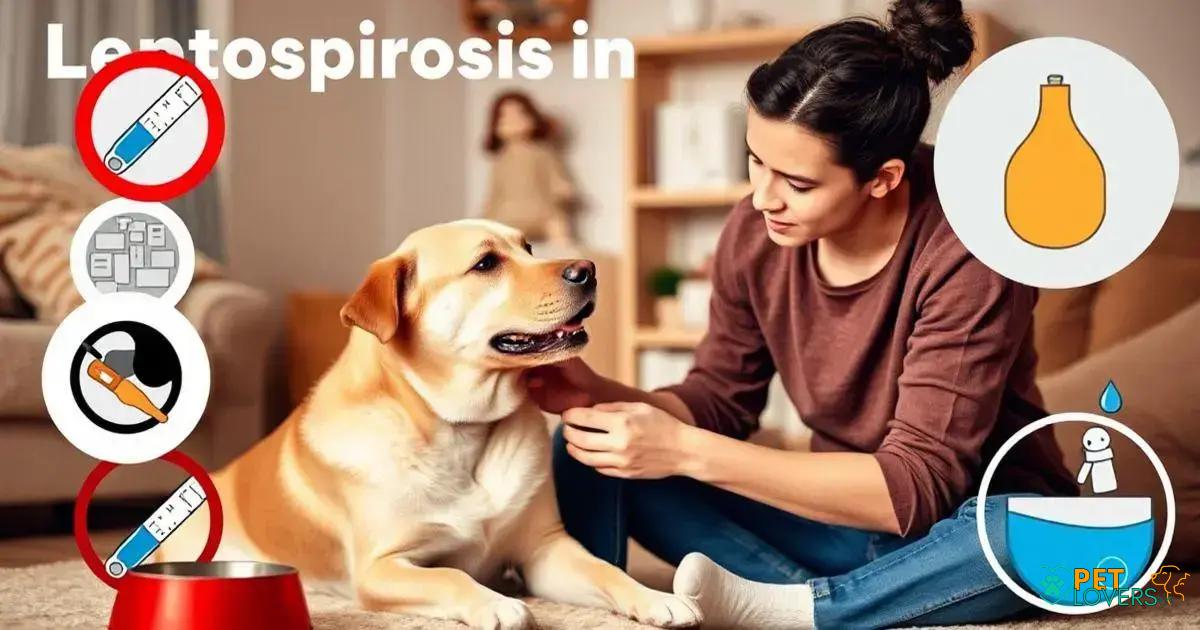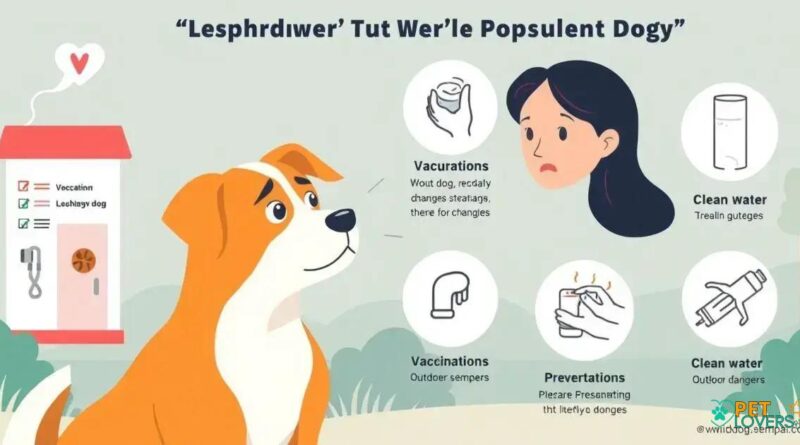Leptospirosis in dogs: The Silent Killer You Need to Know
Leptospirosis in dogs is a serious and potentially life-threatening disease that affects many canines worldwide.
If left untreated, it can lead to serious complications and even death.
As a responsible dog owner, it’s essential to understand the risks and take steps to protect your furry friend from this silent killer.
In this article, we’ll delve into the symptoms, diagnosis, prevention, and treatment of Leptospirosis in dogs, giving you the knowledge you need to keep your dog safe and healthy.
Symptoms and Diagnosis of Leptospirosis in Dogs
Leptospirosis in dogs can present with a range of symptoms, from mild to severe, including fever, vomiting, diarrhea, lethargy, and loss of appetite. The disease can also cause kidney and liver failure, leading to serious complications if left untreated. Diagnosis typically involves a physical examination, medical history, and laboratory tests, including blood tests, urinalysis, and imaging studies. Early detection and treatment are crucial in preventing long-term damage and improving the chances of recovery.
Prevention is key in reducing the risk of Leptospirosis in dogs. Vaccination is the most effective way to protect against the disease, and it’s recommended that dogs receive a series of vaccinations followed by booster shots. In addition, dogs should be kept up-to-date on their core vaccinations, including the rabies vaccine. It’s also essential to avoid exposure to contaminated water and soil, and to clean and disinfect any areas where your dog may come into contact with the bacteria. Regular check-ups with your veterinarian can also help identify any potential issues early on.
Leptospirosis in dogs is a serious and potentially life-threatening disease that requires immediate attention. If you suspect your dog has contracted Leptospirosis, it’s essential to seek veterinary care promptly. Treatment typically involves antibiotics and supportive care, such as fluid therapy and pain management. In severe cases, hospitalization may be necessary to provide additional care and monitoring. With prompt and appropriate treatment, most dogs can recover from Leptospirosis, but it’s crucial to take proactive steps to prevent the disease in the first place.
Prevention and Treatment of Leptospirosis in Dogs

Preventing Leptospirosis in Dogs is crucial to avoid the risk of infection. This can be achieved by keeping your dog up-to-date on vaccinations, avoiding exposure to contaminated water and soil, and practicing good hygiene.
Regularly cleaning and disinfecting areas where your dog may come into contact with the bacteria can also help reduce the risk of infection. Additionally, restricting your dog’s access to areas where the bacteria may be present, such as rat-infested areas, can also help prevent the spread of the disease.
The Treatment of Leptospirosis in Dogs typically involves antibiotics and supportive care, such as fluid therapy and pain management. In severe cases, hospitalization may be necessary to provide additional care and monitoring.
It’s essential to work closely with your veterinarian to determine the best course of treatment for your dog. With prompt and appropriate treatment, most dogs can recover from Leptospirosis, but it’s crucial to take proactive steps to prevent the disease in the first place.
What You Need to Know About Leptospirosis in Dogs is that it’s a serious and potentially life-threatening disease that requires immediate attention. If you suspect your dog has contracted Leptospirosis, it’s essential to seek veterinary care promptly.
Regular check-ups with your veterinarian can also help identify any potential issues early on. By staying informed and taking proactive steps to prevent the disease, you can help keep your dog safe and healthy.
What You Need to Know About Leptospirosis in Dogs
Leptospirosis in dogs is a serious and potentially life-threatening disease that requires immediate attention. As a responsible dog owner, it’s essential to stay informed about the risks and take proactive steps to prevent the disease.
By understanding the symptoms, diagnosis, and treatment options, you can help keep your dog safe and healthy. Regular check-ups with your veterinarian and staying up-to-date on vaccinations can also help identify any potential issues early on.
With the right information and precautions, you can protect your furry friend from this serious disease.
Conclusion: Protecting Your Dog from Leptospirosis
In conclusion, Leptospirosis in dogs is a serious and potentially life-threatening disease that requires immediate attention.
By understanding the symptoms, diagnosis, and treatment options, you can help keep your dog safe and healthy.
Prevention is key, and regular check-ups with your veterinarian, staying up-to-date on vaccinations, and practicing good hygiene can go a long way in preventing the disease.
Remember, early detection and treatment are crucial in preventing long-term damage and improving the chances of recovery.
Don’t wait until it’s too late – take proactive steps to protect your furry friend today.
FAQ – Frequently Asked Questions about Leptospirosis in Dogs
What are the symptoms of Leptospirosis in dogs?
The symptoms of Leptospirosis in dogs can include fever, vomiting, diarrhea, lethargy, loss of appetite, and kidney and liver failure.
How is Leptospirosis diagnosed in dogs?
Leptospirosis is typically diagnosed through a combination of physical examination, medical history, and laboratory tests, including blood tests, urinalysis, and imaging studies.
What is the treatment for Leptospirosis in dogs?
The treatment for Leptospirosis typically involves antibiotics and supportive care, such as fluid therapy and pain management. In severe cases, hospitalization may be necessary.
Can Leptospirosis be prevented in dogs?
Yes, Leptospirosis can be prevented by keeping your dog up-to-date on vaccinations, avoiding exposure to contaminated water and soil, and practicing good hygiene.
How can I protect my dog from Leptospirosis?
Regular check-ups with your veterinarian, staying up-to-date on vaccinations, and practicing good hygiene are all important steps in protecting your dog from Leptospirosis.
What are the consequences of untreated Leptospirosis in dogs?
Untreated Leptospirosis can lead to serious complications, including kidney and liver failure, and even death.





